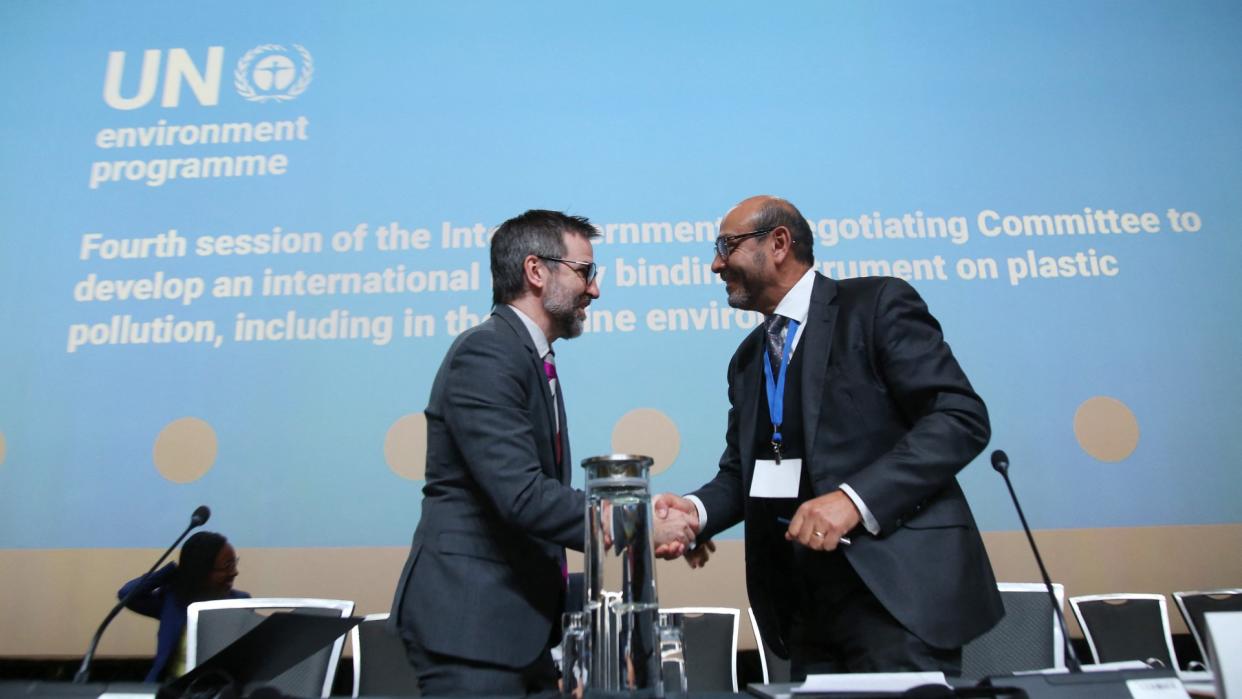Ottawa climate talks: can global plastic problem be solved?

Representatives from around the world will meet in Ottawa this week to continue drafting the first global treaty aimed at halting soaring plastic pollution.
Thousands of negotiators in the Canadian capital will "streamline the existing treaty draft and decide its scope", said The Associated Press. This is the fourth of five meetings of the United Nations Intergovernmental Negotiating Committee for Plastics (INC4) after 175 nations agreed in 2022 to make the first legally binding treaty on plastics pollution by the end of 2024. The "extremely short timeline for negotiations" is meant to match "the urgency of the problem".
The "hoped-for treaty" aims to limit plastic production by 2040, said Reuters. If agreed, it could be "the most significant deal" on climate-warming emissions since the 2015 Paris Agreement, when nations agreed to keep global temperatures from rising beyond 1.5°C. This is a "once-in-a-lifetime opportunity", said Inger Andersen, executive director of the UN's Environment Programme (UNEP).
How bad is the plastic pollution problem?
Plastic production is an extraordinarily greenhouse gas-intensive process. The industry currently accounts for 5% of all global carbon emissions, according to a report published last week by the US federal Lawrence Berkeley National Laboratory.
But the industry is on an "exponential growth trajectory", said The Guardian. The report's "stunning" estimates suggest that by 2050, the industry could account for 20% of the world's carbon footprint.
The findings make it clear that plastic production is a "wrecking ball for our climate", said Neil Tangri, science and policy director at the environmental justice group Global Alliance for Incinerator Alternatives (who reviewed the report).
The report provides the "strongest evidence to date on the need to stop and reverse the expansion of plastic production", he told the paper.
At December's COP28 climate talks, negotiators agreed that the world should transition away from planet-warming fossil fuels. But as pressure to do so has increased, oil and gas companies "have been looking more to the plastics side of their business as a lifeboat", said AP News.
What challenges do these climate talks face?
Participating nations must decide whether the treaty should focus on health (both human and the environment), limiting plastic production, restricting chemical use – or "any combination of the above", said AP News.
Rather than being "anti-plastic", the treaty should "eliminate unnecessary single-use and short-lived plastic products", said Andersen. "Everybody wants this treaty," she added. "There is a global demand for this, for a solution."
But during the three previous rounds of talks in Uruguay, Paris and Nairobi, countries became "divided" on the scope of the treaty, said Reuters. Participants are under pressure to find "common ground" before the final round in December in Busan, South Korea. And negotiators in Ottawa have a "tough task".
One challenge is how to "define where the plastics lifecycle starts", said chair of negotiations, Andrés Gómez Carrión, as well as defining "sustainable production and consumption".
But the greatest challenge is resistance from major oil- and gas-producing and exporting countries. They "do not want a treaty that limits their ability to extract and export fossil fuels to make plastic", Björn Beeler, international coordinator for the International Pollutants Elimination Network, told AP News.
Known as the Like-Minded Countries, Saudi Arabia, Iran and China have all opposed plastic production limits. Their resistance could limit the scope of the agreement to focus more on plastic waste and greater recycling.
But, Beeler told AP News, "Production is at the centre of everything, it's the reason why this is moving slow. And it's going to get supercharged. It's not about oceans. It's more about oil."

